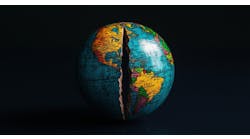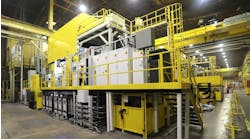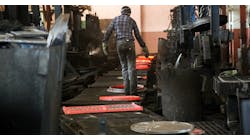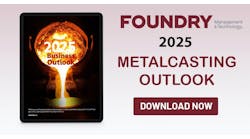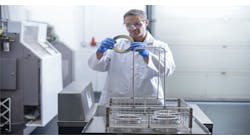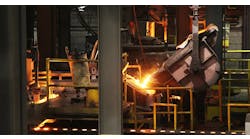Manufacturers have been struggling to fill open positions for skilled workers for a decade or more, leaving them in a fairly steady state of uncertainty about business planning. The staffing problem has become more widespread and persistent since 2020, and now it may be said to be a chronic situation.
The pandemic also introduced the unprecedented level of federal subsidies to individuals, which surely makes it harder to locate skilled workers, and certainly is a principal cause of inflation in prices for raw materials, energy, services, and virtually everything manufacturers and consumers buy regularly. Gauging the direction of inflation introduces another element of uncertainty.
Since February the European economy has been trapped in a fog of uncertainty that descended with the start of Russia’s war on Ukraine, and the trade embargoes that have resulted from that. In a global economy, that uncertainty spreads and intensifies.
Then came the new wave of uncertainty about China’s economic stability, with ambiguity surrounding a new pandemic outbreak, and more supply-chain uncertainty for manufacturers and wholesalers relying on Chinese supplies.
How much uncertainty can a global free-market economy endure?
The advantage of a global economy is thought to be that supply sources are maximized, ensuring competitive prices for buyers of goods and services, while the field of potential customers is maximized to promote product innovation.
The advantage of free-market economics is said to be dynamism, an inherent ability to renew the forces shaping supply and demand, rewarding efficiency and overcoming shortages, and ensuring that consumers’ impulses will prevent any status quo from lingering too long. Nevertheless, uncertainty grows. And now the global free-market seems to have accommodated a new uncertainty to grip buyers and sellers: an energy crisis.
European manufacturers, including foundries, are scaling back operations to deal with rising natural-gas and electricity costs. Steel and chemical producers are downsizing because they have no alternative in the face of tightening emissions regulations – meaning this uncertainty has been planned. Farmers and agricultural enterprises apparently are next to face the reality of uncertainty. Will we still blame uncertainty when everything (energy, raw materials, industrial products, food and consumer goods) is in short supply or out of reach?
Underlying the looming new uncertainty is at least one truth: a decades-long push by regulators and manufacturers to embrace electrified living, at home, at work, on the roads and rails and in the air, while simultaneously making electricity more difficult to obtain. This is most acute in Europe, where Germany, the U.K., and other nations have spurned coal, gas, and nuclear energy options in favor of the more virtuous wind and solar. They were certain that mandating demand would create the clean-energy supplies they required. Now, the certainty is that consumers across Europe face soaring prices and energy shortages.
North America remains a comparatively low-cost market for oil-and-gas production, and resources are plentiful. In economics this is known as a free-market opportunity. Reportedly, some Western European leaders have pleaded with the U.S. and Canada to supplement the energy requirements over there with available liquid natural-gas supplies – but cannot break through our own certainty that now is the moment to “transition” to a green economy. The Europeans cannot buy their way into this market now that our leadership is certain North Americans will not be left behind in the move to “sustainability.”
Leaders’ rhetorical commitment to strengthening “manufacturing” has been nearly as consistent over the past three decades as their pledges to cut carbon emissions and save the planet from the sweltering and airless future of which they are certain. We have a solid opportunity to ensure the first, but we’re going for more of the latter despite the uncertainty over how it can be accomplished amid all the other uncertainties we must shoulder.
There are very few sure things in this life, but eschewing those we know – namely the availability of comparatively clean energy at reasonable cost – to power manufacturing activities that will address some other liabilities and encourage new growth opportunities … well, apparently that’s too much of a risk.
